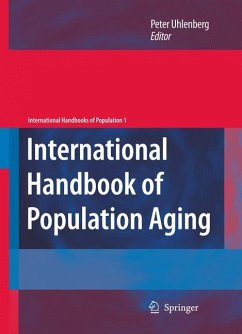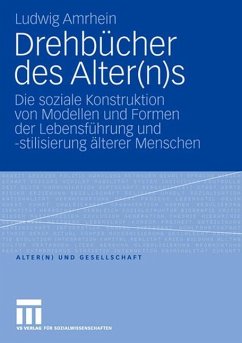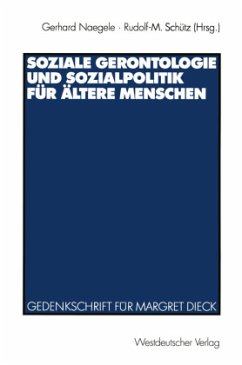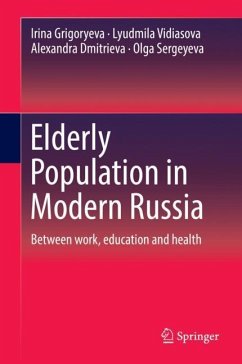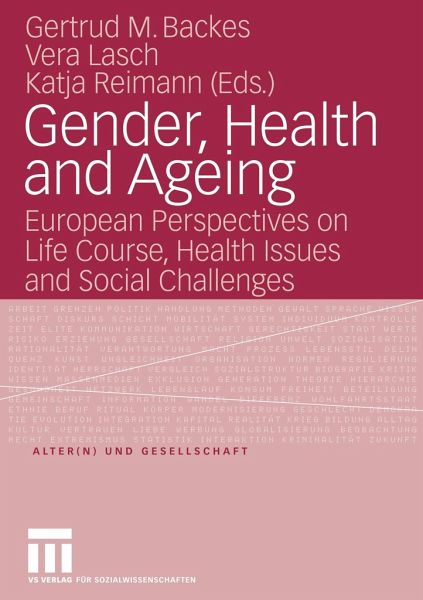
Gender, Health and Ageing
European Perspectives on Life Course, Health Issues and Social Challenges
Herausgegeben: Backes, Gertrud M.; Lasch, Vera; Reimann, Katja

PAYBACK Punkte
0 °P sammeln!
The different research fields - gerontology, gender and health - have generated different views, knowledge and foci on ageing, health and gender. It is now necessary to integrate these aspects into research, policy and practice. The objective of this book is to provide an overview of gender, health and ageing. Important theoretical concepts, such as life course and "Lebenslagen" in old age, or differences in men's health, are introduced. It is increasingly important to build a European basis of knowledge, to conduct discussions on European research findings, and to develop European research frameworks. In this volume, central theoretical debates on gender impacts on life course and old-age health, and vital issues of health research in the context of gender and old age are introduced. Specific aspects, such as the impact of gender and age on cardiovascular health, elder abuse and mental health, or care between gender relations, gender roles and gender constructs, are pointed out. Special attention is given to the impact of social, political and economic change in different New EU Member States, like Hungary, Poland and Slovenia.
Foreword Pasqualina Perrig-Chiello Certain books are eagerly anticipated and long overdue. "Gender, health, and ageing" is such a book. Its topic is relevant in many different ways. The de- graphic and societal changes of the past decades, such as longevity and - provement of public health, have definitely created new and often very distinct realities for men and women. However, these diversities have only marginally and fragmentally been the topic of research endeavours. There is, for example, a general growing awareness for the societal phenomenon of "feminization of old age", yet the topic and its psychosocial and health-related consequences haven't attracted the scientific interest they would have deserved. It is noteworthy, that still until a few decades ago, the majority of geriatric and gerontological studies were oriented towards male standards without considering gender effects. Even though subsequent studies increasingly began to focus on differences between women and men, they referred mainly to the biological sex of a person and not to their gender belonging. Due to these scientific neglects and limitations, the state of the art in the field of gender, health and ageing is sketchy and often enough contradictory (Perrig-Chiello & Höpflinger, 2004).








